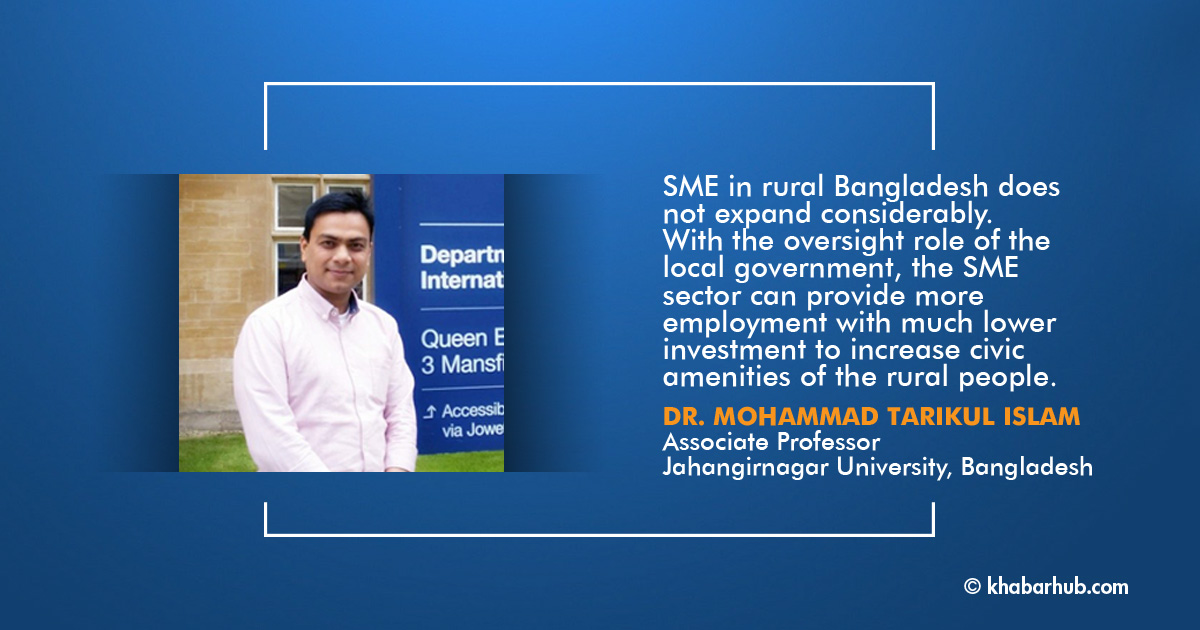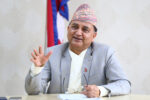Revitalizing rural economies has paybacks far greater than just improving the lives of people in rural communities and can also contribute to food security and diminish rural-urban migration.
Rural development has its roots in community-based development and employing a bottom-up approach to improving rural communities through decentralization, participation, and governance.
Rural development programs are usually top-down as most of the initiatives are taken without consulting with the community for whom the development projects are planned.
The central demand of the local government policy is to develop the undeveloped villages finding the best ways to improve the rural lives with the participation of the rural people themselves so as to meet the required need of the rural area.
Community-level consultation before arriving at a credible decision has been the core of the rural development approach as the outsider may not understand the setting, culture, language and other things prevalent in the local area.
Rural development has been identified as a unique approach to improve the livelihood of rural people such as changes in rural productivity, employment opportunities, income and wealth distribution, social structure and social mobility, resource management, information access, grassroots political movement, gender equality, conducive environment, rural people’s power, health and education, and human development.
Conventionally, rural development in Bangladesh has been equal to agricultural development in a broader sense, and the agricultural sector remains an important part of Bangladesh’s rural development.
The experiences also highlight that rural development also equal to poverty alleviation. For sustaining the agricultural development and poverty alleviation program, the Bangladesh government has been constantly providing financial assistance among the rural community in various forms.
In a developing country like Bangladesh where about 62% of people live in the rural area are confronted with various problems that generate the economic growth of the country.
Rural development programs have also been carried out through community-based organizations including the vibrant NGOs community with various levels of conventionalism, procedures and undertakings.
The history of the small and medium entrepreneurs (SME) in Bangladesh is antique. In the ancient age, Bengal was rich in different small and cottage industries as well as trade and commerce.
After the independence of Bangladesh in 1971, the different governments brought changes in trade and industrial policies. At present, the SME sector has become an important sector for the economy of Bangladesh.
Around 25% of employment is created by this sector. Currently, the wave of SMEs has touched upon the rural economy and SMEs are emerging as a potential sector in rural Bangladesh.
SME is particularly suitable for densely populated countries like Bangladesh where the SME sector can provide employment with much lower investment.
A clear institutional framework with reinforced management and planning capacities, participatory mechanisms and regular financial negotiations between all levels of government and local communities in the developing countries is crucial to mainstream SME into the rural development process and initiatives.
SMEs nowadays has been considered as the thrust sector in the economic development of the country with growing importance from all walks of life.
In a developing country like Bangladesh where about 62% of people live in the rural area are confronted with various problems that generate the economic growth of the country.
SME in the rural area does not expand considerably rather this sector has an incredible prospect to be expanded in the rural area to increase the economic growth by addressing the unemployment issue.
Sustainable development can be viewed as an integrated agenda and fundamental principle that endeavors to provide solutions to economic, social and environmental challenges.
The 2030 agenda for sustainable development emphasizes that governments and public institutions will also work closely on the implementation of sustainable development goals (SDGs) with different actors (regional and local authorities, sub-regional institutions, international institutions, academia, philanthropic organizations, volunteer groups and others).
The local sphere of government is in the best position to facilitate the mobilization of local development stakeholders, notably the non-government organizations and private sectors, local communities, and national and international organizations, for attaining inclusive sustainable development within their respective localities.
The reality suggests that the pandemic has shown us the importance of being prepared collectively when crises hit.
Only such an approach can deliver win-win policies for people, the planet, and prosperity. The SDGs emphasize the need for an inclusive and localized approach where the promise to leave no one behind is embedded at the heart of the local government.
Achieving SDGs requires contextualizing development priorities and programming while local government is the best fit for implementing policies and programs for improved service delivery that can address poverty, reduce inequality, climate vulnerability, promote gender equity.
Participatory grassroots local government is indispensable for delivering on SDGs, particularly in poor and marginalized areas. Unfortunately, it is far from being a reality in most of the developing countries including Bangladesh.
For rural sustainable development through expansion of SME must follow a multi-stakeholder approach. The approach denotes the collaborative efforts towards the development and execution of the proposed action plan.
Similar to SDGs, the SME localization plan would be a quick-yielding remedy to counteract the Covid-19 fallout both in the medium and long term.
A clear institutional framework with reinforced management and planning capacities, participatory mechanisms and regular financial negotiations between all levels of government and local communities in the developing countries is crucial to mainstream SME into the rural development process and initiatives.
The government of Bangladesh must strive to bring all stakeholders on board to accelerate the collective efforts while setting enabling national frameworks that empower local actors to develop and lead their strategies aligned with the SDGs.
A clear institutional framework with reinforced management and planning capacities, participatory mechanisms and regular financial negotiations between all levels of government and local communities in the developing countries is crucial to define priorities within SDGs and plan of action accordingly.
Apparently, there is mounting importance of the multi-stakeholder approach for rural sustainable development through expansion of SME as it denotes the collaborative efforts towards the development and execution of the SME action plan.
Rural development has been characterized by ineffective community group establishment, top-down process, neglecting community participation, lack of interagency coordination, project-based approach, and lack of commitment.
SME in the rural area does not expand considerably rather this sector has an incredible prospect to be expanded in the rural area to increase the economic growth by addressing the unemployment issue.
Innovative and holistic strategies need to encourage for expansion of SMEs and to facilitate access of the rural people to SMEs while providing a conducive environment for income-generation and employment opportunities for the poor as well as assistance to link small rural economies to markets is equally important.
The relevant actors under the guidance and leadership of the local authorities must work to build the capacity and occupational skills of the rural people especially in the area of entrepreneurship.
Ensure that the Youth Development Department is providing more rigorous training to enhance the skill of rural people so as to run SMEs effectively.
There is a need for paradigm shifts in government so that they could facilitate physical infrastructure (road, power and others) to attract investors to establish and run SMEs in rural Bangladesh; Public sector should ensure a congenial atmosphere so as to enable the local investor to start off SME.
As well, strengthen PPP (Public-Private Partnership) for expansion of SME to contribute towards sustainable development in Rural Bangladesh.
For rural sustainable development through expansion of SME must follow a multi-stakeholder approach. The approach denotes the collaborative efforts towards the development and execution of the proposed action plan.
Moreover, the engaging local community in policy development and implementation – from the village level to the national and regional level is crucial.
There is a need for paradigm shifts in government so that they could facilitate physical infrastructure (road, power and others) to attract investors to establish and run SMEs in rural Bangladesh; Public sector should ensure a congenial atmosphere so as to enable the local investor to start off SME.
Ensure that, public bank particularly Krishi Bank (Agricultural Bank) has dedicated loan window to promote SME by providing loan to the promising investors with minimum interest rate.
It’s broadly believed that a formal oversight arrangement with the guidance of the local government authorities could embrace the interdependence and shared future course of action of the rural communities, building a stronger foundation or rural renewal and, ultimately, greater overall unity and shared prosperity and responsibility for the expansion of SME in rural Bangladesh.
(Dr. Mohammad Tarikul Islam, an Associate Professor of the Department of Government and Politics at Jahangirnagar University in Bangladesh. He has been a Visiting Scholar at the University of Oxford and the University of Cambridge, United Kingdom. Before joining the university, Dr. Islam was serving the United Nations Development Programme for a period of seven years. The School of Oriental and African Studies-SOAS has recently appointed Dr. Islam as an Honorary Visiting Fellow)








Comment